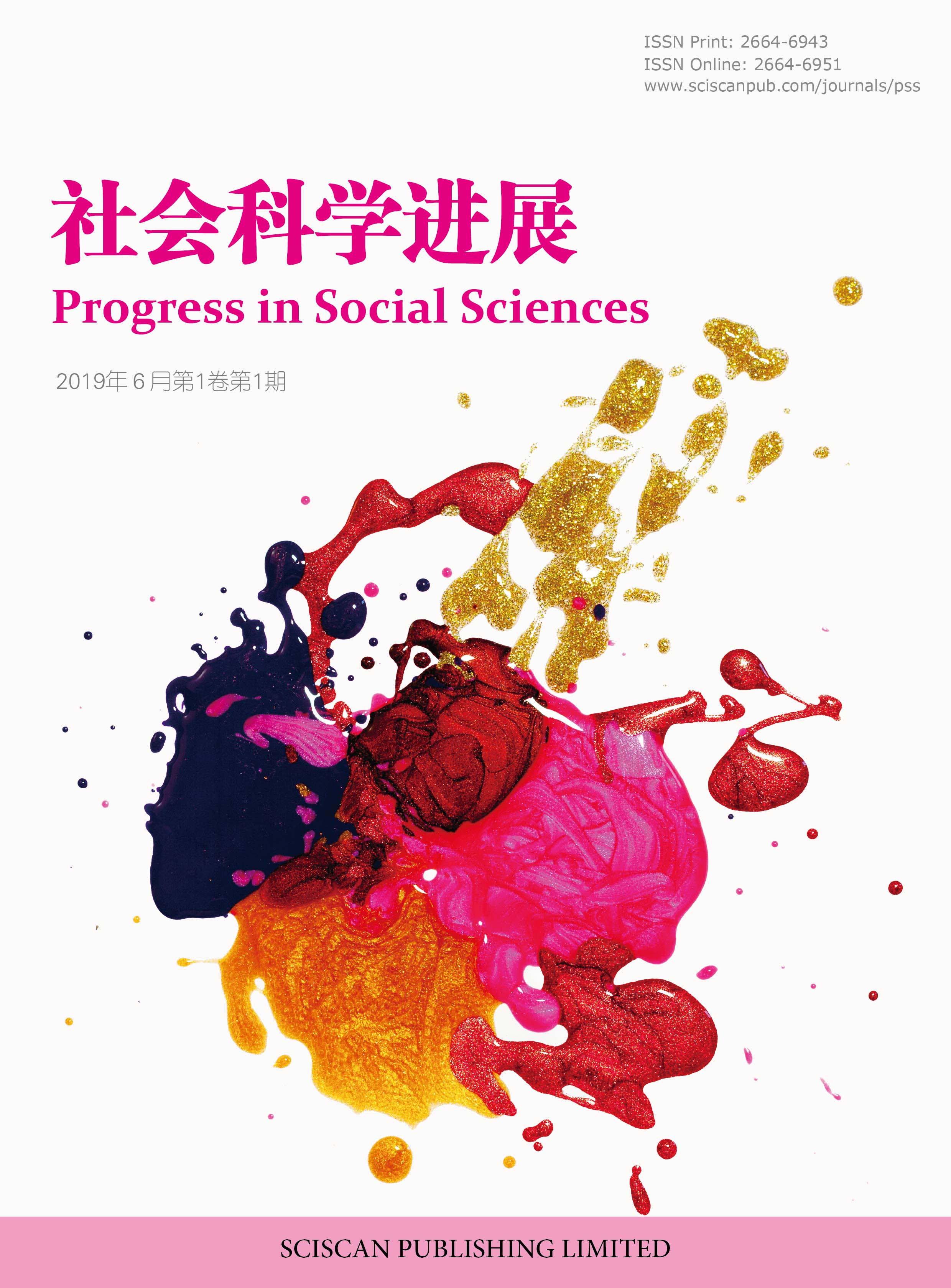Progress in Social Sciences
智能电网的研究进展
Research Status of Smart Grid
- Authors: 柏广红 朱羽昊 杜雷
-
Information:
江苏师范大学,徐州
-
Keywords:
Smart grid; Distributed energy resources; Energy conservation and emission reduction智能电网; 分布式能源; 节能减排
- Abstract: As a core enabler of digital transformation in energy systems, smart grids have achieved significant progress in renewable energy integration and multi-energy synergy optimization in recent years. This study systematically reviews the conceptual framework, critical technologies, and developmental trajectories of smart grids by synthesizing domestic and international research achievements over the past 15 years. The analysis spans multiple dimensions, including intelligent sensing, communication networks, and standardization frameworks. Findings indicate that China has established distinctive strengths in demonstration projects and engineering applications, while European and American countries retain leadership in architectural design and market mechanism innovation. Future advancements must prioritize breakthroughs in key technical challenges such as multi-energy complementarity coordination, cybersecurity safeguards, and cross-regional dispatch capabilities. 智能电网作为能源系统数字化转型的核心载体,近年来在可再生能源消纳、多能协同优化等领域取得显著进展。本文结合国内外近15年的研究成果,系统梳理了智能电网的概念内涵、关键技术与发展脉络,从智能感知、通信网络、标准化建设等维度展开综述。研究表明,中国在智能电网示范工程等领域已形成特色优势,而欧美国家在智能电网架构设计、市场机制创新方面保持领先地位。未来需重点突破多能互补协同、信息安全防护与跨区域调度等核心技术挑战。
- DOI: https://doi.org/10.35534/pss.0704049
- Cite: 柏广红,朱羽昊,杜雷.智能电网的研究进展[J].社会科学进展,2025,7(4):282-286.
1 引言
在全球能源转型加速的背景下,智能电网已成为实现碳中和目标的关键基础设施。据国际能源署统计,2023年全球可再生能源发电占比达35%[1],但弃风弃光率仍高达8.7%[2]。传统电力系统难以应对高比例可再生能源波动性[3],亟需借助智能电网技术实现源—网—荷—储的协同优化[4]。中国“十四五”规划明确提出,到2025年建成50个智能电网综合示范区[5],而欧盟“绿色协议”要求2030年智能电表覆盖率达100%[6]。在此背景下,系统分析智能电网技术进展与挑战具有重要理论与实践价值[7]。
美国自2007年启动智能电网倡议以来,已部署超过7000万只智能电表[8],用户侧响应能力提升至12GW[9]。欧洲则聚焦跨国电网互联,通过ENTSO-E协同机制将跨国交易电量占比提升至23%[10],并依托E-Energy计划构建了1.5GW级虚拟电厂[11]。中国智能电网建设虽呈现“技术追赶—工程引领”特征但相比发达国家[12],我国在跨区市场机制[13]与核心设备国产化率[14]方面仍存在差距。本文旨在系统对比分析国内外技术路线的差异,为政策制定与产业升级提供参考。
2 智能电网的概念
智能电网没有一个确定的概念,各领域各专家从不同的角度出发都有自己的理解[15]。美国电科院在2000年左右首次提出未来电网的概念[15]。欧洲在2006年发布的报告中阐述了智能电网的发展理念[8]。紧接着美国在2008年发布的报告中也使用了“智能电网”这一术语[15]。余贻鑫认为,智能电网是全流程都可以实现自动化的供电网络[16]。马丁贺肯斯Martin Hauske认为,智能电网包括对设备实时监控、对数据收集整合分析、对系统优化3个层面[17]。如今智能电网这一概念已被全世界采用。
总之,智能电网是通过数字化、自动化技术实现电力流、信息流双向交互的新型电力系统。
3 智能电网的研究进展
3.1 国外研究进展
欧美国家针对智能电网的研究起步较早,也已经有了强大的研究群体[18]。但各国实际情况各不相同,对智能电网研究的侧重点也存在差异。
3.1.1 美国的研究进展
美国作为智能电网技术的全球引领者,通过“政策支持—技术突破—市场创新”三位一体模式[18],持续推动电网现代化转型。2006年,美国IBM公司合作开发了智能电网方案[19];2009年与马耳他合作建立智能公用系统,实现电网系统数字化[20]。2009年美国白宫在《复苏计划尺度报告》中对智能电网的落地实施提供政策支持,致力于建立跨越四个时区的统一电网[21]。近十年美国在技术体系构建方面,逐渐侧重于通信协议标准化和智能电网架构优化[22]。美国能源部资助的“GridLAB-D”开源仿真平台,集成2.3万节点模型,验证了动态电价对负荷曲线的调节效果,降低峰谷差18%[23]。NREL提出“三层弹性架构”(物理层—信息层—市场层),通过博弈论模型实现分布式资源最优调度[24]。夏威夷Maui岛部署微电网群,实现15秒级故障隔离响应,较传统SCADA系统效率提升40%[25]。在关键技术突破方面,美国着力研究人工智能算法以提高系统性能[26]。斯坦福大学团队在电网中应用联邦强化学习,使分布式光伏消纳率从72%提升至89%[27],并降低通信带宽需求30%[28]。MIT提出基于图神经网络的拓扑辨识算法,在IEEE 123节点系统中实现98.7%的拓扑重构准确率[29]。在市场创新方面,Texas A&M大学构建双层Stackelberg博弈模型,量化需求侧响应参与度对电价波动的影响[30]。PJM市场通过LMP机制引导伊利诺伊州数据中心负荷迁移,2022年减少输电阻塞费用1.2亿美元[31]。
总之,美国的经验表明,技术标准先行与市场化资源配置是智能电网可持续发展的核心动力,但其老旧基础设施仍需大规模更新迭代以支撑技术落地。
3.1.2 欧洲的研究进展
欧洲则以碳中和目标为导向,重点推进可再生能源整合与跨国电网互联。2005年,欧洲成立欧洲智能电网论坛;2006年,欧盟强调智能电网的发展方向[32]。欧盟强制要求,到2020年可再生能源占比达到20%,推动丹麦、德国风电渗透率超50%[33]。KTH皇家理工学院提出基于模型预测控制的风电场协同调频策略,将频率偏差标准差降低42%[34]。德国Fraunhofer研究所开发跨区直流最优潮流(DC-OPF)算法,解决14国电网协同问题,计算效率提升60%[35]。丹麦Westküste 100项目通过电解制氢耦合风电,实现100MW级波动功率平滑,弃风率从9%降至2.3%[36]。瑞士ETH Zurich提出基于DPoS的轻量级共识算法“GridChain”,在200节点测试中TPS达1500[37]。
总之,欧洲的经验表明,顶层政策设计与跨国协同创新是推动高比例可再生能源电网稳定运行的关键,但其在跨国利益协调与储能经济性方面仍需进一步突破。
3.2 国内研究进展
国内关于智能电网的研究虽然起步较晚,但目前已在关键技术领域开展了大量研究和实践。国家科技部2023年的报告显示,2016—2023年国家在智能电网技术与装备重点项目已投入48亿资金[38]。国家能源局2023年《新型电力系统发展蓝皮书》报告中明确到2030年智能电表覆盖率达到100%[39]。在技术研发方面,我国目前突破了柔性直流输电、广域协同控制等核心技术[40]。清华大学提出“电压源型换流器多目标协调控制”方法,在RTDS仿真中谐波畸变率<1.5%[41]。张北±500kV柔性直流电网工程,输送容量4500MW,解决冬奥会赛区100%绿电供应[42]。华为团队建立5G URLLC电力业务信道模型,误码率(BER)<10^-6满足IEC 61850标准[43]。广东珠海配网差动保护项目采用5G硬切片[44],端到端时延稳定在12ms,保护动作正确率100%[45]。在示范工程应用方面,浙江鹿西岛项目集成风电/光伏/储能,可再生能源渗透率达到100%[46];西安交大开发基于改进NSGA-II的多目标优化模型,使微电网运行成本降低19%[47]。部署光储柴微电网群,户均停电时间从35小时/年降至2小时,柴油消耗减少87%[48]。天津大学提出“电—热—气混合潮流分解算法”[49],求解速度较传统方法提升8倍,优化了多能互补系统算法[50]。苏州同里示范区实现集成光伏、燃料电池与梯次利用储能,能源综合利用效率达76%[13]。
综上所述,通过国家战略牵引与集中攻关,中国智能电网技术已从“跟跑”转向“并跑”[51],不仅在核心技术领域取得重大突破,还形成了农村—城市—区域三级实践体系,但在跨区域协同调度与核心设备国产化率方面仍需持续研究[52]。
4 对我国发展智能电网的建议
在当前国内外复杂的社会经济形势下,研究突破智能电网领域的关键技术[22],构建中国自主的智能电网体系对于早日实现双碳目标、拉动国内需求带动产业发展、构建经济稳定的和谐社会、彰显大国责任具有重大意义[15]。因此,发展智能电网是国家能源战略的必然选择[51]。智能电网建设并非一蹴而就,需要在宏观政策、关键技术、市场机制等方面进行统筹管理,在此提出下列建议。
(1)坚持一体化管理。智能电网的发展应该在国家政策的战略目标下稳定前行,潜心研究立足世界技术前沿,以国内实际需求为导向,以科技创新为依托,建成符合我国能源战略和企业需求的智能电网[15]。
(2)攻关核心技术。针对柔性直流输电核心设备、高精度传感芯片等核心技术要支持国产化替代研发,力争到2030年将关键设备国产化率提升至90%以上[52]。开发适配中国电网特性的AI算法库,重点攻克多能流协同优化、源网荷储动态匹配等难题[42]。
(3)创新市场机制,鼓励多元主体参与。借鉴美国PJM模式,在长三角、粤港澳大湾区基于节点边际电价机制开展试点,允许分布式能源聚合商参与竞价[6]。
(4)强化数据韧性。可在东部沿海地区部署“分布式储能+微电网”防灾系统,确保极端天气下关键负荷供电的可靠性。
(5)推广示范工程,打造农村—城市—区域三级示范网。在农村可推广青海玉树光储柴微电网模式;在城市可依托苏州同里经验,在雄安、深圳等新城建设电—热—氢多能互补园区[13];在区域可扩大张北柔性直流工程规模。
(6)加强国际合作与人才培养。在IEC、CIGRE等组织中积极参与国际标准制定,主导微电网、储能等领域标准编制工作,提升中国技术话语权。在清华大学、西安交大等高校设立“智能电网交叉学科”,联合华为、南瑞等企业建立联合实验室,定向培养“AI+电力”专业人才[21]。
5 结语
尽管各个国家发展智能电网的侧重点不同,但采用先进的信息技术例如人工智能、先进的控制技术对现有智能电网系统进行优化已成为共识。美国主要通过技术标准先行与市场化资源配置推动电网现代化转型,欧洲则重点推进可再生能源整合与跨国电网互联。与欧美等发达国家不同,我国发展智能电网首要目的是满足国内电能需求,通过国家战略牵引与集中攻关,已形成农村—城市—区域三级实践体系,并不断突破技术难关。
智能电网建设是一项复杂且长期的工程。我国发展智能电网需用发展的眼光进行统筹规划,要在国家战略方针的指导下攻关核心技术,创新市场机制,强化数据韧性,实现一体化管理并加强国际合作与人才培养。
参考文献
- IEA.Renewables 2023: Analysis and forecast to 2028[R].Paris: International Energy Agency,2023.
- Farhangi H.The path of the smart grid[J].IEEE power and energy magazine,2009,8(1):18-28.
- Bogdanov D,Breyer C.Role of smart charging of electric vehicles and vehicle-to-grid in integrated renewables-based energy systems on country level[J].Energy,2024(301):131635.
- Gungor V C,Lu B,Hancke G P.Opportunities and challenges of wireless sensor networks in smart grid[J].IEEE transactions on industrial electronics,2010,57(10):3557-3564.
- 杜伟,文腾.《“十四五”现代能源体系规划》等多项政策出台布局中国新型能源体系[J].国际石油经济,2023,31(1):9-10.
- 庞晓艳,李建,梁汉泉,等.智能电网调度技术支持系统构架及调度自动化现状研究[J].四川电力技术,2013,36(4):37-39.
- 范文欣,李娜.智能电网的现状和发展前景分析[J].科技创新与应用,2013(32):144.
- European Commission.The European Green Deal[R].Brussels:EC,2020.
- U.S.Department of Energy.Grid Modernization Initiative:Multi-Year Program Plan[R].Washington:DOE,2023.
- ENTSO-E.Ten-Year Network Development Plan 2024[R].Brussels:ENTSO-E,2024.
- Braun M.Evaluation of German Virtual Power Plant Projects[C]//2018 IEEE PES GM.IEEE,2018:1-5.
- 尤海涛.智能电网技术的研究现状及发展趋势[J].黑龙江科学,2018,9(12):108-109.
- 丁筱,郭创新.互联多微电网联盟优化运行现状及展望[J].电气自动化,2023,45(2):1-3,7.
- 李士林.智能电网技术现状及发展分析[J].科技与创新,2021(3):28-29,32.
- 张文亮,刘壮志,王明俊,等.智能电网的研究进展及发展趋势[J].电网技术,2009,33(13):1-11.
- 余贻鑫,栾文鹏.智能电网[J].电网与清洁能源,2009,25(1):7-11.
- IBM 论坛 2009,点亮智慧的地球[EB/OL].[2025-04-10].http:/www-900.bm.om/cn/forum2009/wisdom.html.
- 于兴龙.智能电网发展现状及设备研发方向需求分析[J].科技创新与应用,2013(30):167-169.
- Interconnection P J M.State of the market report[J].Market Monitoring Unit,2007,23(6):32-35
- 胡鹏飞,朱乃璇,江道灼,等.柔性互联智能配电网关键技术研究进展与展望[J].电力系统自动化,2021,45(8):2-12.
- 肖世杰.构建中国智能电网技术思考[J].电力系统自动化,2009,33(9):1-4.
- 陈树勇,宋书芳,李兰欣,等.智能电网技术综述[J].电网技术,2009,33(8):1-7.
- 韩士杰,韩丽娟.微电网的研究现状及在我国的应用前景[J].科技与创新,2014(20):109.
- Schneider K P,Mather B A,Pal B C,et al.Analytic considerations and design basis for the IEEE distribution test feeders[J].IEEE Transactions on power systems,2017,33(3):3181-3188.
- Althoff D,Dias S H B,Filgueiras R,et al.ETo‐Brazil:a daily gridded reference evapotranspiration data set for Brazil (2000–2018)[J].Water Resources Research,2020,56(7):e2020WR027562.
- Mengelkamp E,Gärttner J,Rock K,et al.Designing microgrid energy markets:A case study:The Brooklyn Microgrid[J].Applied energy,2018(210):870-880.
- 王立谦,朱明清.浅谈智能电网的现状与发展[J].黑龙江科技信息,2011(19):36.
- Obi M,Slay T,Bass R.Distributed energy resource aggregation using customer-owned equipment:A review of literature and standards[J].Energy Reports,2020(6):2358-2369.
- Tang X,Chen J,Qin Y,et al.Reinforcement learning-based energy management for hybrid power systems:state-of-the-art survey,review,and perspectives[J].Chinese Journal of Mechanical Engineering,2024,37(1):43.
- Wiser R,Bollinger M,Barbose G,et al.Annual report on US wind power installation,cost,and performance trends:2006[J].Lawrence Berkeley National Laboratory,2008,32(1):1-23.
- Gaafar N,Jürgens P,Schweiger J S,et al.System flexibility in the context of transition towards a net-zero sector-coupled renewable energy system—case study of Germany[J].Environmental Research:Energy,2024,1(2):025007.
- Deng W,Zhang X,Zhou Y,et al.An enhanced fast non-dominated solution sorting genetic algorithm for multi-objective problems[J].Information Sciences,2022(585):441-453.
- 金国强,陈征洪.我国智能电网发展现状与趋势[J].质量与认证,2019(9):54-56.
- Eldridge B C,Somani A.Impact of FERC order 2222 on der participation rules in us electricity markets[R].Pacific Northwest National Laboratory (PNNL),Richland,WA (United States),2022.
- Marshall T.The European Union and major infrastructure policies:The reforms of the trans-European networks programmes and the implications for spatial planning[J].European Planning Studies,2014,22(7):1484-1506.
- Olsen O K,Sieraszewski D,Ivanko D,et al.Hybrid AC/DC optimal power flow modelling approach for coordination in flexibility market[C]//2021 International Conference on Smart Energy Systems and Technologies (SEST).IEEE,2021:1-6.
- Mathiesen B V,Lund H,Connolly D,et al.Smart Energy Systems for coherent 100% renewable energy and transport solutions[J].Applied energy,2015(145):139-154.
- 周勇.智能电网的发展现状、优势及前景[J].黑龙江电力,2009,31(6):404-406.
- 李泓,张强.蓄势赋能谋发展,勇毅笃行谱新篇[J].储能科学与技术,2022,11(9):2691.
- 康重庆,杜尔顺,郭鸿业,等.新型电力系统的六要素分析[J].电网技术,2023,47(5):1741-1750.
- 汤晓君,丁卫东,吕泱宇,等.智能电网智能感知技术的研究现状与挑战[J].广东电力,2021,34(3):1-11.
- 周念成,廖建权,王强钢,等.深度学习在智能电网中的应用现状分析与展望[J].电力系统自动化,2019,43(4):180-191.
- 刘卫东,李奇南,王轩,等.大规模海上风电柔性直流输电技术应用现状和展望[J].中国电力,2020,53(7):55-71.
- 王渭,崔健.智能电网大数据处理技术现状与挑战[J].电子技术与软件工程,2016(1):188.
- 历莉.园区智能微电网技术的应用[J].市政技术,2019,37(1):252-255.
- 刘倪宣.微电网技术现状及未来发展趋势[J].中国高新科技,2024(6):70-71,74.
- 李献伟,李保恩,王鹏.微电网技术现状及未来发展分析[J].通信电源技术,2015,32(5):202-207.
- 张瑞卿,周啸波,饶建业,等.中国分布式清洁能源发展现状和展望[J].沈阳工程学院学报(自然科学版),2017,13(4):289-295,320.
- 李越嘉,杨莹,常国祥.微电网技术在中国的研究应用现状和前景展望[J].中国电力,2016,49(S1):154-158,165.
- 王宏,闫园,文福拴,等.国内外综合能源系统标准现状与展望[J].电力科学与技术学报,2019,34(3):3-12.
- 胡天羽.浅析智能电网现状及发展趋势[J].集成电路应用,2018,35(4):82-84.
- 陈敬德,盛戈皞,吴继健,等.大数据技术在智能电网中的应用现状及展望[J].高压电器,2018,54(1):35-43.
Research Status of Smart Grid
Bai Guanghong Zhu Yuhao Du Lei
Jiangsu Normal University, Xuzhou
Abstract: As a core enabler of digital transformation in energy systems, smart grids have achieved significant progress in renewable energy integration and multi-energy synergy optimization in recent years. This study systematically reviews the conceptual framework, critical technologies, and developmental trajectories of smart grids by synthesizing domestic and international research achievements over the past 15 years. The analysis spans multiple dimensions, including intelligent sensing, communication networks, and standardization frameworks. Findings indicate that China has established distinctive strengths in demonstration projects and engineering applications, while European and American countries retain leadership in architectural design and market mechanism innovation. Future advancements must prioritize breakthroughs in key technical challenges such as multi-energy complementarity coordination, cybersecurity safeguards, and cross-regional dispatch capabilities.
Key words: Smart grid; Distributed energy resources; Energy conservation and emission reduction
















